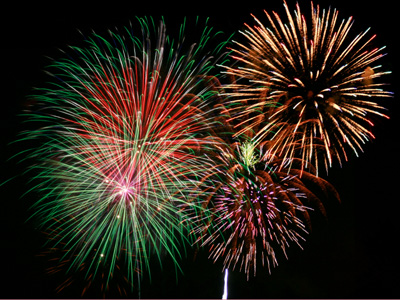
Chemical Reactions
This GCSE Chemistry quiz is all about one of the fundamental parts of science - chemical reactions. Chemical reactions are changes to the arrangement of atoms and the molecular structure of materials. They are all around us. We can see some reactions such as fireworks and explosions. Many are very useful, like cooking and combustion. Others are more vital but are not quite as obvious such as photosynthesis and respiration. Without these reactions there would be no life on Earth - in fact there would be no universe as we know it. Everything would be made of elements and nothing would ever change. Not very exciting!
Chemical changes are usually irreversible, you can't get easily back to the original materials (e.g. you can't un-cook an egg). However, some are easily reversed like the reaction of nitrogen and hydrogen to form ammonia and the colour changes of universal indicator.
Magnesium + zinc chloride → magnesium chloride + zinc
Fe2O3 + 3CO → 2Fe + 3CO2
Hydrochloric acid + sodium hydroxide → sodium chloride + water
Ready for more?
not all...
quizzers. Try to win a coveted spot on our Hall of Fame Page.







